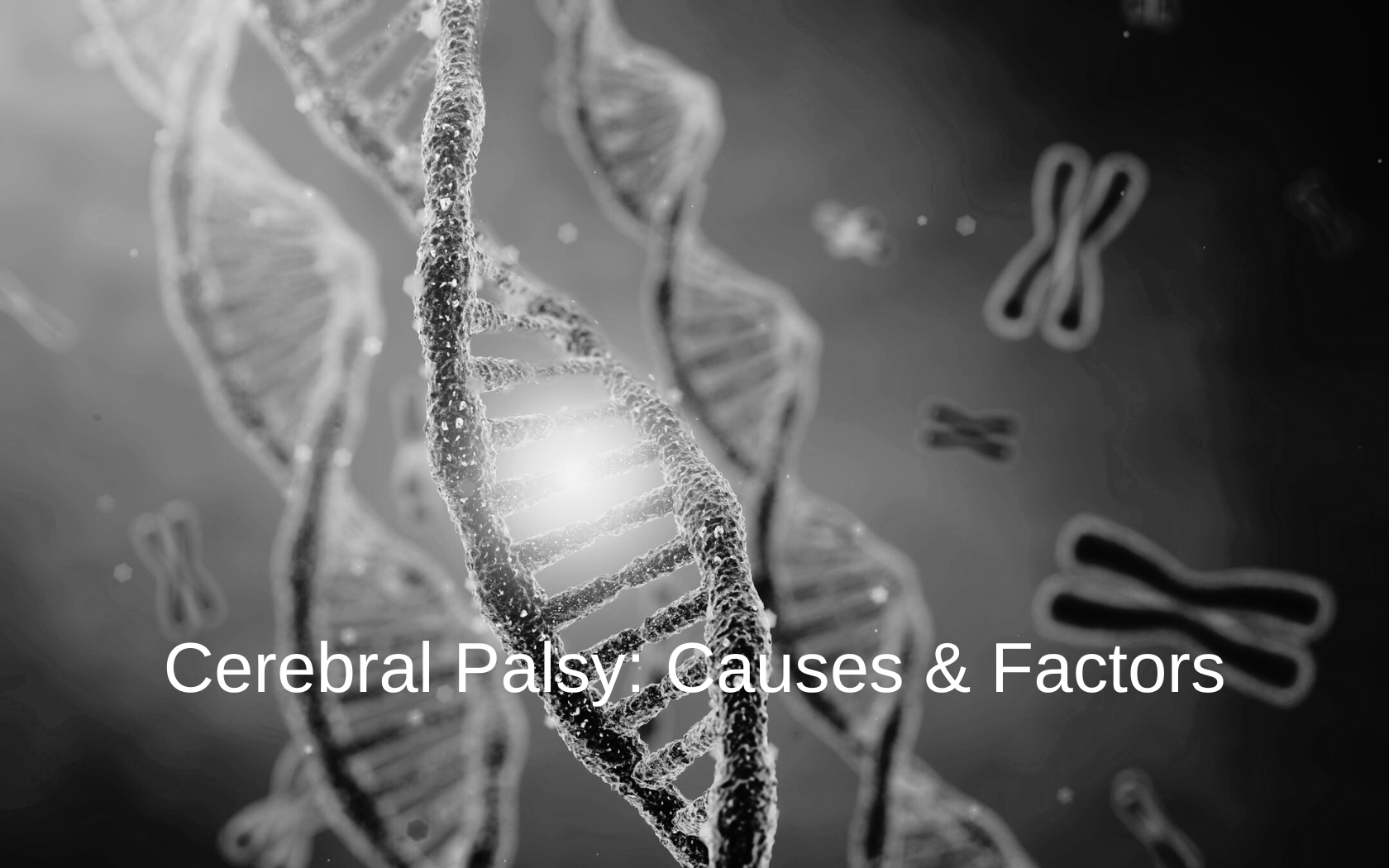Parents pass many things on to their kids through their genes— eye and hair color, complexion, personality traits, etc. It’s common knowledge that they can pass down certain diseases too. But is cerebral palsy one of them? Is cerebral palsy genetic?
For over 100 years, scientists have agreed that cerebral palsy comes from brain injuries that occur around the time of birth. But new research shows that genes could have something to do with cerebral palsy development.

Can Cerebral Palsy Be Genetic?
The primary cause of CP is brain damage that occurs before, during, or shortly after birth. But the latest research suggests that genetic mutations can play a role in some cases. These genetic factors may affect brain development, increasing the likelihood of CP.
To be clear, cerebral palsy isn’t inherited in a simple manner like some other conditions. Take Huntington’s Disease for example. It’s a progressive brain disorder caused by a defective gene on chromosome 4.
Unlike Huntington’s disease, there isn’t a “cerebral palsy genetic mutation”. But a person’s genetics could make them more likely to develop CP than someone else.
Causes of Cerebral Palsy
Most cases of cerebral palsy stem from birth complications, such as:
- Premature birth
- Lack of oxygen to the brain
- Infections
- Traumatic head injuries (such as when a doctor applies too much pressure with forceps when delivering the baby).
But recent research shows that a baby’s genetic predisposition may interact with these potential causes of cerebral palsy. So, while cerebral palsy’s not inherited, a baby could be born with CP due to a combination of genetic and circumstantial factors.

Cerebral Palsy Genetic Research
A groundbreaking Canadian study published in March 2024 revealed the following:
- The causes of cerebral palsy are more diverse than we once thought.
- One in ten cases of cerebral palsy involve a genetic variant.
The 7-year-long study involved 327 kids with cerebral palsy and their parents. Both the children and the parents underwent genetic testing to try to answer the question, “Is cerebral palsy genetic?”
When the results came through, the researchers found that 11.3 percent of the children had structural alterations in their DNA. These alterations were pathogenic/likely pathogenic (P/LP) variants.
Another study from Genomic Medicine Institute of the Geisinger Health System identified six genes that could cause CP. The Geisinger research team looked at 13 studies from 2013 to 2022, involving 2,612 people with cerebral palsy (CP) and genetic testing.
They found that the number of CP cases with genetic changes is similar to other neurodevelopmental disorders (NDD). This suggests that genetic testing should be recommended for kids with CP as part of their routine care, the way it’s recommended for kids with neurodevelopmental disorders like autism spectrum disorder or intellectual disability.
So, can cerebral palsy be genetic, according to these new studies? It could be, at least in part. We can say that there are genetic contributors for cerebral palsy. More research is needed. If more people with CP get genetic testing, we’ll have more information.
Should Your Baby Get Cerebral Palsy Genetic Testing?
Right now, genetic testing isn’t a standard test for people with cerebral palsy. But it may be soon. Technology is advancing. It’s now possible to sequence the entire human genome in a rapid and cost-effective way. So doctors might start recommending genetic testing for kids with CP.
Cerebral palsy genetic testing could help you eliminate potential causes of cerebral palsy and find out why your baby has it. This is especially true if your child has already had a thorough medical evaluation and the cause of CP is still unclear. Identifying the cause could help doctors manage a child’s health better.

Negligence-Related Causes of Cerebral Palsy
In summary, genetic factors could cause (or help cause) around 11.3 percent of CP cases. But what about the other 88.7 percent of cases?
Some causes of cerebral palsy are out of a doctor’s control. They’re unpreventable, and happen spontaneously. One example is when a baby experiences a stroke in the womb, leading to brain damage that causes CP.
But some cases of CP result from negligence or preventable circumstances during pregnancy, labor, or delivery. Here are some negligence-related causes of CP:
- Failure to monitor fetal distress
- Delayed C-section when the baby needs to be delivered right away
- Improper use of medical tools
- Failure to diagnose and treat infections
- Poor management of maternal health conditions such as high blood pressure or diabetes
- Medication errors
If you believe your child’s CP may be negligence-related, contact our legal team. We’ll be happy to assist you in discovering whether you’re able to take legal action against a medical care provider. You can also read more cerebral palsy malpractice claims here.




